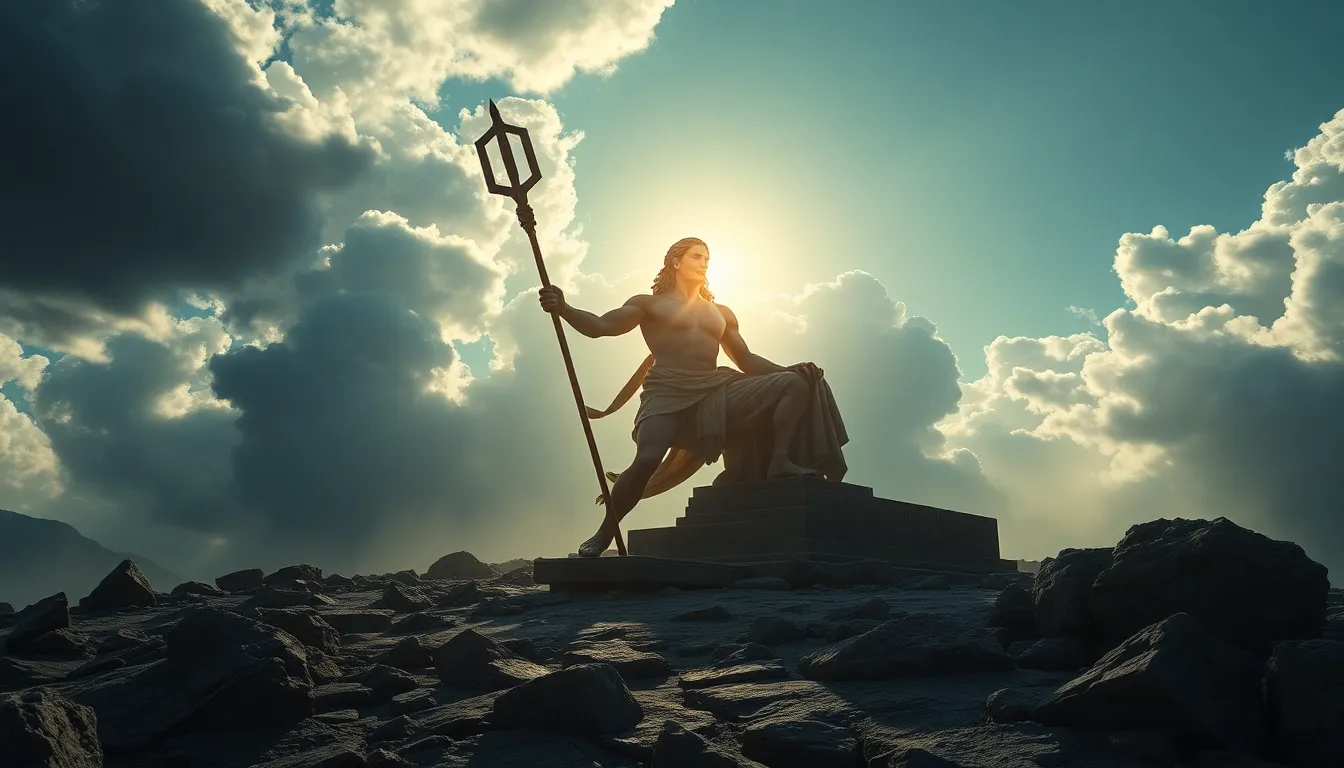The Story of Prometheus: A Journey of Sacrifice and Hope
Introduction to Prometheus
In Greek mythology, Prometheus is a titan known for his intelligence and as a champion of mankind. His story is one of defiance against the gods, particularly Zeus, and embodies the themes of sacrifice and hope. Prometheus’s legacy has inspired countless works of literature and art, making him a pivotal figure in understanding the human condition and our quest for knowledge.
The Creation of Humanity
Prometheus played a crucial role in the creation of humanity. According to various myths, he is credited with shaping humans from clay, a task that highlights his connection to both the divine and mortal realms. He molded humanity in the image of the gods, imparting a spark of life that set them apart from other creatures.
His relationship with the gods, particularly with Zeus, was complex. While Prometheus admired the potential of humanity, Zeus viewed them with disdain, fearing their growing intelligence and capabilities. This tension set the stage for Prometheus’s eventual rebellion.
The implications of Prometheus’s actions were profound, as he imbued humanity with qualities that would lead to both great achievements and significant challenges. His creation of mankind marked the beginning of a new era, one filled with hope and potential, but also fraught with dangers.
The Gift of Fire
One of the most significant gifts that Prometheus bestowed upon humanity was fire. This element was not merely a source of warmth and light; it represented the foundation of human civilization. Fire enabled early humans to cook food, protect themselves from predators, and forge tools, facilitating their survival and advancement.
In a daring act of defiance, Prometheus stole fire from the gods and delivered it to mankind, an act that symbolized the pursuit of knowledge and enlightenment. By doing so, he challenged Zeus’s authority and demonstrated his belief in the potential of humanity to rise above their primitive state.
Fire has come to symbolize:
- Knowledge and enlightenment
- Transformation and progress
- The duality of creation and destruction
The Consequences of Defiance
Prometheus’s act of defiance did not go unpunished. Enraged by his betrayal, Zeus devised a cruel punishment for the titan. Prometheus was bound to a rock on Mount Caucasus, where an eagle would eat his liver daily, only for it to regenerate overnight, subjecting him to eternal torment.
This punishment underscores the themes of suffering and resilience inherent in Prometheus’s story. Despite his immense pain, Prometheus remained steadfast in his love for humanity, viewing his suffering as a necessary sacrifice for their benefit. His enduring spirit in the face of relentless agony reflects the human struggle against adversity.
The Impact on Humanity
The gift of fire profoundly changed human existence. With fire, humanity experienced remarkable advancements, including:
- The development of agriculture
- The rise of civilizations and cities
- Scientific and technological progress
However, this gift also came with a burden. The duality of progress is evident in the challenges that knowledge brings. While fire enabled humanity to thrive, it also introduced dangers, such as warfare and environmental destruction. Prometheus’s story serves as a cautionary tale about the responsibilities that accompany knowledge and power.
Prometheus in Literature and Art
Prometheus has been a subject of fascination in both ancient and modern literature and art. One of the most notable works is Aeschylus’s tragedy “Prometheus Bound,” which explores themes of free will, suffering, and the quest for knowledge. In this play, Prometheus stands as a symbol of resistance against tyranny and the pursuit of truth.
In addition to Aeschylus, Prometheus has appeared in various forms of art, from classical sculptures to contemporary films. His story has been reimagined in numerous contexts, illustrating the enduring relevance of his character. Modern interpretations often focus on themes of rebellion, innovation, and the moral dilemmas associated with human advancement.
Lessons of Sacrifice and Hope
The story of Prometheus carries profound moral implications. His choices reflect the complexities of sacrifice and the hope that can arise from suffering. Prometheus demonstrates that sometimes, one must endure pain for the greater good, and that hope often emerges in the darkest of times.
His narrative encourages us to consider the following lessons:
- The importance of standing up for one’s beliefs, even in the face of adversity.
- The recognition that progress often comes with sacrifices.
- The enduring spirit of humanity and our capacity for resilience.
In today’s society, the story of Prometheus remains relevant. As we grapple with ethical dilemmas surrounding technology, environmental issues, and social justice, Prometheus serves as a reminder of our responsibility to use knowledge wisely and compassionately.
Conclusion
Prometheus’s legacy is one of defiance, sacrifice, and hope. His story has endured through centuries, illustrating the complexities of the human spirit and our relentless pursuit of knowledge. As we reflect on his tale, we are reminded of the delicate balance between progress and responsibility.
Ultimately, the story of Prometheus encourages us to embrace our potential while considering the moral implications of our actions. It inspires us to strive for a better future, fueled by the hope that arises from sacrifice and determination.




